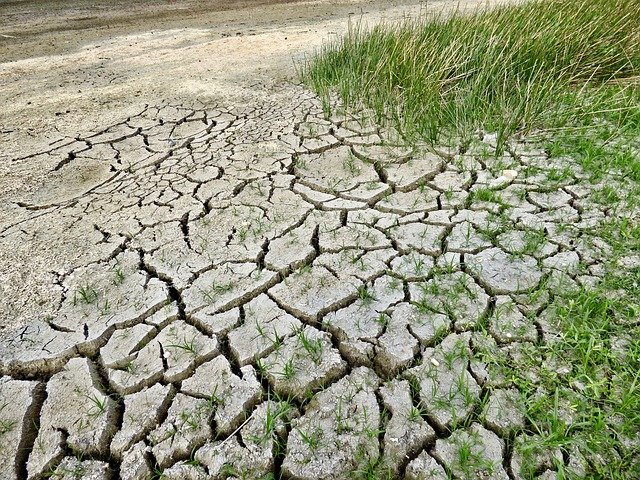by Ruth Moraes
On the 30th of March 2021, Pope Francis issued the Pastoral Guidelines on Climate Displaced People. It is a unique document because in addition to what previous Popes have said about the dangers of environmental degradation, this is the first document dedicated to the pastoral and practical care of environmentally displaced people.
The Guidelines highlight ten challenges for climate displaced people which along with practical responses constitute a roadmap for the pastoral planning in relation to climate displaced people. They also illuminate and celebrate Pope Francis’ particular concern for this vulnerable and often unrecognised group of people.
The challenges identified are:
- Acknowledging the Climate Crisis and Displacement (“CCD”) Nexus
- Promoting Awareness and Outreach
- Providing Alternatives to Displacement
- Preparing People for Displacement
- Fostering Inclusion and Integration
- Exercising Positive Influence on Policy-Making
- Extending Pastoral Care
- Cooperating in Strategic Planning and Action
- Promoting Professional Training in Integral Ecology
- Fostering Academic Research on CCD
Pope Francis acknowledges in the first point: “We see growing numbers of people displaced on account of the crippling impacts of the climate crisis and other manifestations of the ecological crisis.” One of the manifestations is the human face of the issue because the climate crisis also “threatens fundamental human rights like the right to life, adequate food and water supply, adequate housing (or shelter), and health.”
Once again he reiterates the injustice of the fact that it is the poor, the vulnerable and the innocent, those who have contributed the least to environmental degradation, that are most severely impacted by it: “This is a profoundly moral issue, one that calls for eco-justice”. Pope Francis echoes Pope St. John Paul II’s words “God gave the earth to the whole human race for the sustenance of all its members, without excluding or favouring anyone.” (Centesimus Annus, 31). It is wrong to deny anyone, but particularly the poor of the benefits of God’s wonderful gift.
The climate crisis (whether due to rapid onset triggers or slow on set processes) often leads to forced displacement when people’s homes become uninhabitable or livelihoods are lost or a depletion of essential natural resources causes violent conflict. Pope Francis particularly draws attention to the fact that climate displaced people are not included in a category of people requiring protection under the 1951 Refugee Convention. This frequently leads to a gap in protection for them regardless of whether they are internally displaced or internationally displaced.
Precisely because of these challenges the Catholic Church is concerned about the impact of the climate crisis on the dignity of human beings. Echoing Pope Benedict XVI, Pope Francis asks: “Can we disregard the growing phenomenon of “environmental refugees”, people who are forced by the degradation of their natural habitat to forsake it – and often their possessions as well – in order to face the dangers and uncertainties of forced displacement?” (Message World Day of Peace 2010 “If you want to Cultivate Peace, Protect Creation”).
While the rest of the points are also pertinent, there are a few that are particularly worth mentioning:
- Under the challenge of promoting awareness and outreach he admonishes us not to place the burden on the next generation to solve the problem caused by previous ones. We should be the generation that is remembered for acting collaboratively to preserve our common home and give future generations the opportunity to live with dignity
- In providing alternatives to displacement Pope Francis stresses that governments, leaders, institutions and organisations need to take into account the interests of their most vulnerable people, in keeping with the principle of the preferential option for the poor. The Church is meant to assist in this task in finding alternatives to displacement that uphold the right to life, which includes the possibility of living a dignified life, in peace and security.
- Regarding exercising a positive influence on policy making, we are called to do it in wisdom and love, guided by the Holy Spirit. Pope Francis was adamant that regarding policy, decision makers need to take into account the interests of those most at risk of displacement. Without doing so, the interests of a few end up prevailing over the common good.
In recognising that in God’s boundless love, mercy and grace, God cares for the whole human family and the whole of creation regardless of borders, we are called to do the same. The document echoes Pope Francis’ previous call for Catholics to welcome, protect, promote and integrate climate displaced people, developing a special focus on their pastoral care and responding to their unique needs.
Throughout the document we see Pope Francis once again calling on people to take action on integral ecology inspired by the Gospel and in light of Catholic Social Teaching. If you would like to get more involved in caring for creation, especially with Laudato Si’ Week (16-24 May 2021) just around the corner please get in touch with us at the Justice and Peace Office.

